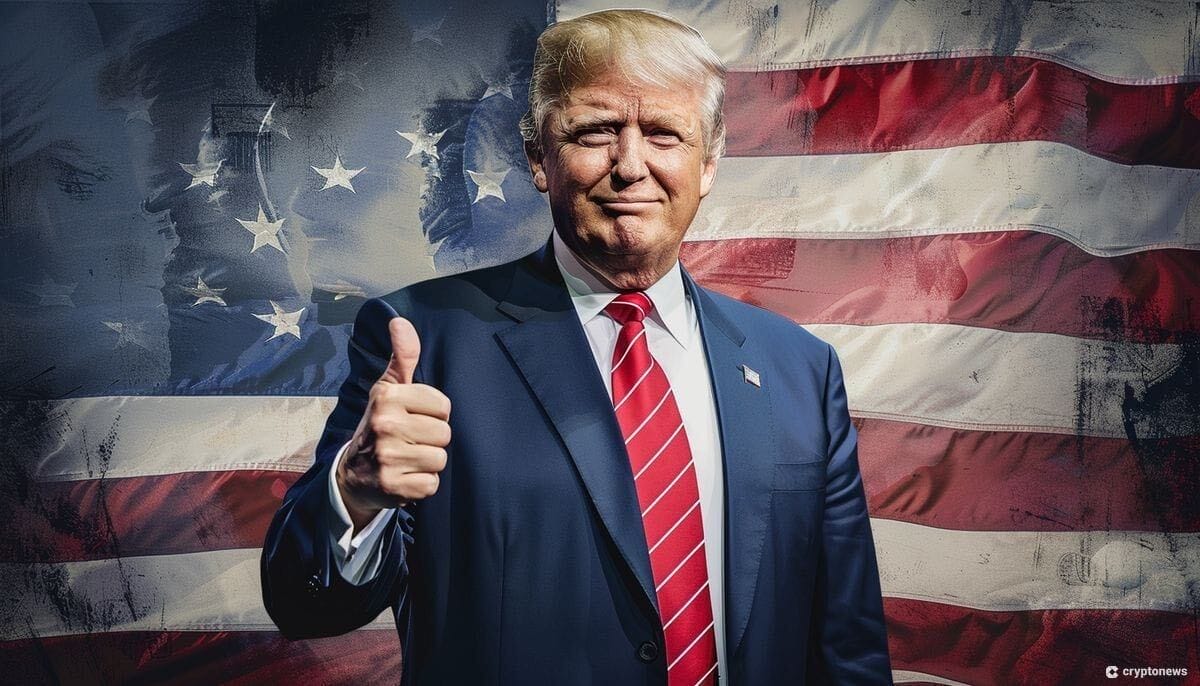Last updated:
 Why Trust Cryptonews
Why Trust Cryptonews

Former President Donald Trump surprised many when he posted an AI-generated video on X. The video, which quickly went viral, depicts Trump and Elon Musk dancing to the Bee Gees’ famous song, “Staying Alive.”
This light-hearted portrayal of the two influential figures has captured the attention of millions, becoming an overnight sensation on the microblogging platform.
The Trump-Musk Interview: Crypto Silence Amidst Speculation
Shared initially by Musk, the video originated from Mike Lee, US Senator for Utah, and features a whimsical portrayal of Trump and Musk dancing. This viral sensation coincided with Trump and Musk’s widely publicized interview on Monday night.
During the interview, which drew over a million listeners, many hoped to glean insights into Donald Trump’s stance on cryptocurrency. Such anticipation stemmed from recent actions by Donald Trump, including accepting crypto donations and backing Bitcoin miners, which led some to believe he might embrace the mantle of “crypto president”. However, the nearly two-hour conversation remained silent on the topic of cryptocurrency.
Instead, the conversation gravitated towards traditional political issues such as U.S. border security, the Russia-Ukraine conflict, and immigration. The omission of any crypto dialogue left observers questioning the sincerity of Donald Trump’s previous gestures and wondering if they signaled a deeper, unspoken agenda.
Legal and Ethical Implications: What This Means for AI, Crypto, and Public Discourse
Both the AI-generated video and the interview’s unexpected trajectory highlight the substantial sway Donald Trump and Musk hold over public discourse, particularly on platforms like X.
This incident, juxtaposing a lighthearted AI creation with the gravity of a presidential interview, underscores the evolving nature of political engagement in the digital age.
Concerns surrounding AI’s potential to mislead voters, especially in the lead-up to the November presidential election in the U.S., have taken center stage in recent discussions.
On August 11, Donald Trump leveled accusations against Vice President Kamala Harris, claiming she used AI to fabricate a crowd at her Detroit campaign event. The former president asserted the crowd “didn’t exist.”
As AI technology progresses, its capacity to shape public perception and discourse should not be underestimated. This incident serves as a stark reminder of the ethical considerations inherent in using such technology, particularly within the politically charged arena.



